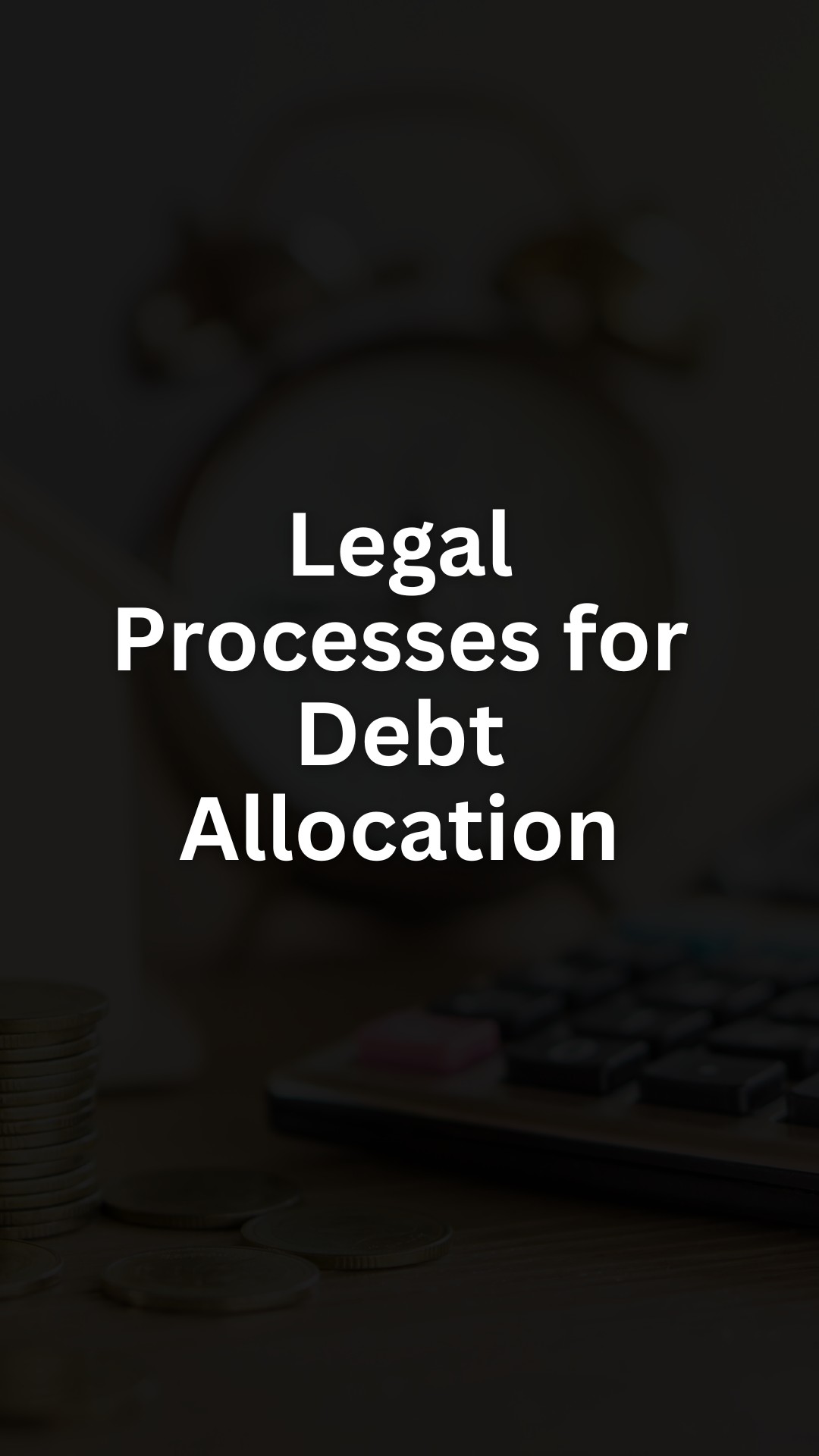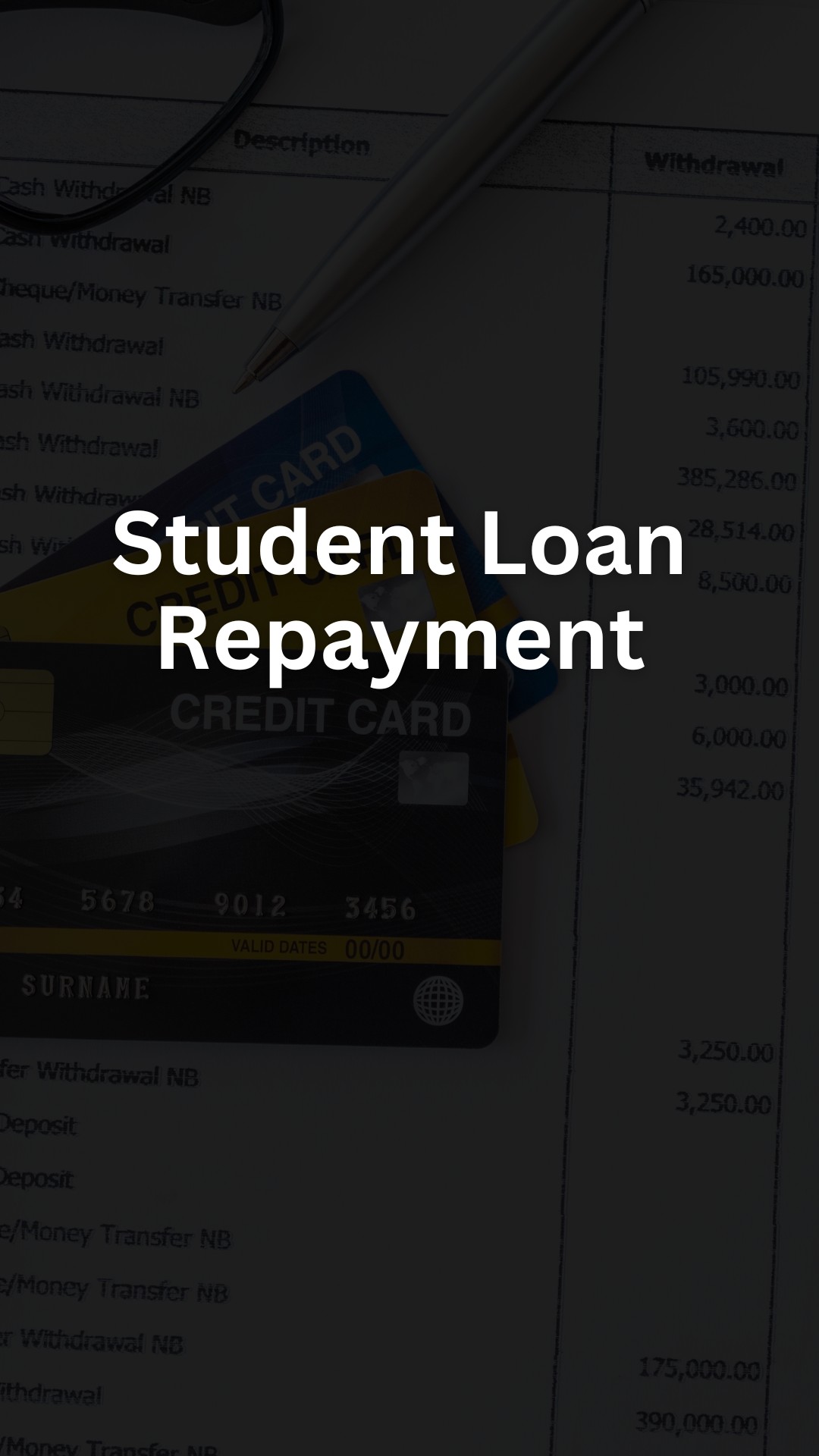Untangling shared debt after a divorce can seem overwhelming.
To manage shared debt after a divorce, it’s crucial to know which debts are shared and which are individual.
This knowledge can help you create a plan that works for both of you.
Start by making a detailed list of all debts. Include credit cards, loans, and any other financial obligations.
Once you know what you owe, you can work on a fair way to split the debt.
Communication with your ex-spouse is important.
A clear discussion can help avoid misunderstandings and ensure both parties are on the same page.
By working together, you can tackle the debts efficiently and move forward with your financial lives.
Understanding Shared Debt in Divorce

During a divorce, you need to understand both legal obligations and moral responsibilities when dealing with shared debt. Different types of debts come with their own rules and challenges.
Legal Obligations vs. Moral Responsibilities
When you divorce, the court will decide who is legally responsible for shared debts. This decision is based on laws that vary by location.
In some states, debts are split 50/50, while in others, the person who incurred the debt is responsible.
Legal obligations are the debts the court orders you to pay. Failing to meet these can hurt your credit score and lead to more legal trouble.
So, make sure to know what you’re legally required to pay.
Moral responsibilities involve the promises made during your marriage. You may feel obligated to help with debts even if the court doesn’t require it.
For example, repaying a loan your spouse took out to support the family can be seen as a moral duty.
Types of Shared Debts
Credit Card Debt often piles up quickly and can be particularly stressful. This debt may be split based on who made the charges.
Make sure to check the balance and discuss how it will be handled.
Mortgages are usually one of the largest shared debts. Deciding who keeps the house or whether to sell it is a key issue.
You both need to reach an agreement on how to handle this debt.
Car Loans are also common. If one person keeps the car, they might also take on the loan. Otherwise, you might sell the car to pay off the loan.
It’s essential to know the different types of shared debts and how each one affects you. This knowledge helps you make informed decisions during the divorce process.
Negotiating Debt Division

Dividing debt during a divorce can be challenging. It is important to communicate clearly and consider all options to reach an agreement.
Pre-Divorce Debt Discussions
Before you finalize the divorce, sit down and list all debts. This includes credit cards, loans, and mortgages.
Both partners should agree on what debts they will each take on.
You should gather all financial statements and review each debt’s terms. This will help you understand what is owed and to whom.
Consider both parties’ incomes and ability to pay when dividing debts.
Make a plan to pay off or divide debts fairly. You might decide to sell joint assets like a car or house to cover some debts.
Clear communication and honesty are key in this stage.
Mediation Process
If you can’t agree on your own, mediation can help. A mediator is a neutral third party who helps you both reach an agreement.
They do not make decisions for you but guide the discussion.
During mediation, you each share your views and financial information. The mediator helps you find common ground.
You may need to compromise on some debts to reach an agreement.
Mediation can save you time and money compared to going to court. It tends to be less stressful and allows more flexibility in finding solutions.
Both parties must be willing to participate fairly and openly for mediation to work effectively.
Legal Processes for Debt Allocation

Navigating shared debt during a divorce requires understanding the legal frameworks in place. You should be aware of the role of court orders and how different state laws can affect debt division.
Court Orders
Court orders play a major role in dividing debt between ex-spouses. A judge reviews all financial details including debts.
Joint debts are usually split equally, but some debts, like personal loans, may be assigned to the person responsible for them.
Courts consider various factors such as each spouse’s income level and how the debts were acquired.
Debt from joint accounts, credit cards, or mortgages often get special attention.
If one spouse used credit irresponsibly, the court might assign that debt differently.
Make sure to provide accurate financial records and documents.
Accurate details can help the court fairly allocate debt, making this process smoother for both parties.
State Laws and Debt Division
State laws also greatly impact how debts are divided.
In community property states, debts acquired during the marriage are typically shared equally, regardless of who incurred them. These states include California and Texas.
In contrast, equitable distribution states split debts based on what is fair, which may not always mean equal.
The court looks at the length of the marriage, financial status, and contributions of each spouse. States like New York and Florida follow this method.
Research your state’s specific laws on marital debt.
Different states have varied approaches and knowing these can significantly affect your financial outcome.
Consider consulting a family law attorney to understand the specifics for your situation.
Managing Credit and Debt Post-Divorce

Managing your finances after a divorce can be challenging. You’ll need to address updates to your credit report and explore options for handling shared debts.
Credit Report Updates
After a divorce, it’s important to review your credit report to ensure accuracy. Check for any joint accounts or shared debts.
Inform the credit bureaus of the divorce and update your personal information.
Each party is responsible for their own credit report.
Request your free credit report from the three major bureaus: Equifax, Experian, and TransUnion.
Verify that your ex-spouse has no access to your accounts by removing their name.
Be diligent in monitoring your credit score.
Regularly checking helps you catch mistakes early. Disputing errors can prevent future financial headaches.
Debt Refinancing Options
Consider refinancing shared debts to simplify payments.
One option is to transfer joint credit card balances to an individual card. This ensures only one person is responsible for the debt.
For larger debts, like a mortgage, look into refinancing or taking out a new loan in one person’s name.
This removes the other person from the obligation.
Always consult a financial advisor or lender to understand the terms and rates.
If refinancing isn’t an option, work out a payment plan with your ex-spouse.
Clear agreements on who pays what can reduce missed payments and damage to credit scores.
Leasing or selling shared assets might also help cover debts and ease financial strain.
Dealing with Mortgage Debt

When handling mortgage debt after a divorce, you need to decide whether to sell the home or arrange for one person to keep it. Each option has its own steps and considerations.
Selling Marital Property
Selling the home can be a straightforward way to deal with mortgage debt. Both parties work together to list and sell the property.
Key steps include:
- Agree on a real estate agent: Find someone both of you trust.
- Set a sale price: Agree on a price that is fair and competitive.
- Handle profits or losses: Decide how to split any money gained or how to manage any debt left after the sale.
Selling can free both of you from joint mortgage debt and provide a clean break.
Be prepared for: Closing costs, potential repairs, and the time it may take to sell.
Home Buyout Agreements
In a home buyout, one person keeps the house while the other gets compensated. This might involve refinancing the mortgage to remove the other person’s name.
Steps to consider:
- Determine the home’s value: Get an appraisal to understand its worth.
- Agree on a buyout amount: Typically half the home’s equity.
- Refinance the mortgage: The person keeping the house will need to qualify for a new loan.
Benefits include retaining the home and avoiding moving.
Challenges might be securing a new mortgage and ensuring fair compensation.
Addressing Credit Card Debts

Managing credit card debt after a divorce involves finding practical solutions that work for both parties. Understanding your options can help you divide the debt fairly and prevent further financial issues.
Balance Transfer Methods
One approach is the balance transfer method. This involves moving your credit card debt to a new card with a low or zero interest rate.
By doing this, you can reduce the amount of interest you pay, making it easier to manage the debt.
To do this, look for credit cards that offer introductory 0% APR for balance transfers.
Usually, these offers last for 12 to 18 months. Be mindful of any fees associated with the transfer.
It’s important to read the fine print. You don’t want to be surprised by hidden fees.
Another advantage is that it can simplify your payments.
Instead of managing multiple cards, you focus on paying off one card. This can help reduce stress and make budgeting easier.
Remember, it’s crucial to have a plan to pay off the balance before the introductory period ends to avoid high-interest rates.
Credit Card Negotiation Tactics
Another strategy is to negotiate with your credit card issuer.
Start by contacting your credit card company and explain your situation.
Sometimes, they may be willing to lower your interest rate or even reduce the total amount owed. This can make your payments more manageable.
Prepare your case before contacting them.
Gather financial documents that show your current financial status.
It helps to demonstrate your willingness to pay the debt but needing more favorable terms.
Ask if they have a hardship program.
Many companies offer temporary relief for those in difficult financial situations. This could include reduced payments or waived fees.
Consistently communicate and follow up until you reach a fair agreement.
Handling Business Debts

When managing shared business debts after a divorce, it is essential to determine the value of business assets and decide how the business will continue to operate.
Asset Valuation and Division
Start by evaluating the business assets. You need a clear picture of what the business owns, including equipment, inventory, and intellectual property.
Hiring an appraiser can help ensure an accurate valuation.
Next, decide how to divide these assets.
If both parties contributed to the business, you may need to split assets fairly. This might mean selling some assets and dividing the money or one party buying out the other.
Sometimes, you might keep the business but split its profits differently.
Discuss all options and decide what works best for both of you.
Continuation of Business Operations
Think about how the business will continue to run.
If you both stay involved, you’ll need a clear plan defining each person’s role and responsibilities. Using a written agreement can help prevent misunderstandings.
If one person takes full control, decide how that transition will occur.
You might set a timeline for the handover and include steps to ensure the business stays stable.
Consider consulting a lawyer or financial advisor to clarify legal and financial aspects.
They can help put everything into writing, securing both parties’ interests.
Student Loan Repayment

Managing student loans after a divorce involves several steps. You need to figure out who owns the debt and consider if income-driven repayment plans are a good option.
Determination of Debt Ownership
First, you need to determine who is responsible for the student loans.
If the loans were taken out before marriage, they generally stay with the person who borrowed them. Loans taken out during the marriage might be considered joint debt.
Check your divorce decree to see what it says about handling student loans.
It’s crucial to know this because it affects who makes the payments.
If you co-signed on any loans, clarify your roles. Co-signers share responsibility for the debt.
Joint loans need a solid plan for repayment, ensuring neither party falls behind.
Income-Driven Repayment Plans
Income-Driven Repayment Plans (IDR) can be useful if making full payments is hard. These plans adjust payments based on your income and family size. They can lower your monthly payments and spread them over a longer period. This could be helpful in managing post-divorce finances.
You must reapply for IDR plans yearly, reflecting any changes in income or family status. Explore plans like Income-Based Repayment (IBR) or Pay As You Earn (PAYE). They provide flexibility and can ease financial stress. Always communicate with your lender to understand your options and obligations.
Strategies for Paying Off Joint Debts

Creating a clear plan is key. Start by listing all shared debts. Include credit cards, loans, and other obligations. This helps you know what you owe together.
Communicate Regularly
Talk with your ex-spouse about the debts. Decide who will pay which debt. Set a routine for these talks to avoid misunderstandings.
Divide Debts Fairly
Work out a fair way to split the debts. This could be 50/50 or based on who can afford to pay more. You may need to involve a financial advisor or mediator.
Consolidate Debts
Consider merging all debts into one if possible. Debt consolidation can make it easier to manage. But be sure to check interest rates and fees.
Set Up a Payment Plan
Create a payment schedule everyone agrees on. Write down due dates and amounts. Stick to the plan as closely as possible. This keeps you both accountable.
Use Automatic Payments
Set up auto-pay through your bank. This ensures payments are made on time. It also reduces the risk of missed payments, which can hurt your credit.
Update Accounts
Remove each other’s names from joint accounts if possible. Open separate accounts to prevent future financial entanglements. This makes it easier to track who is responsible for what.
Seek Legal Advice
If you can’t agree on a plan, seek legal advice. A lawyer can help you understand your options. They can also help ensure the debt is handled fairly.
Maintaining Financial Independence

Ensuring your financial independence after a divorce requires thoughtfully managing your credit and budgeting effectively on a single income. Each step is vital in securing your financial well-being.
Establishing Personal Credit Lines
It’s crucial to set up your own credit lines in your name. Start by applying for a credit card if you don’t already have one. Use it wisely to build or improve your credit score.
Next, make sure all shared accounts are closed or have your name removed from them. This helps prevent your ex-partner’s financial actions from impacting your credit. Monitor your credit report regularly for any changes or errors.
Lastly, consider a small personal loan to diversify your credit mix. Timely payments on different types of credit can boost your credit score. Aim for a good mix of credit cards, loans, and other credit accounts with consistent payment history.
Creating a Budget for Single Income
Budgeting on a single income can be challenging but manageable with a clear plan. Start by listing all your income sources and fixed expenses like rent, utilities, and insurance.
Create a separate list for variable expenses such as groceries, entertainment, and dining out. Examine where you can cut back or adjust to stay within your means. Keep tracking your spending to ensure you stick to your budget.
Set aside a portion of your income for an emergency fund. This money will help cover unexpected expenses without disrupting your budget. Additionally, allocate some funds towards savings and investment to secure your future financial independence.
Seeking Professional Financial Advice

Splitting up finances after a divorce can be tricky. It’s smart to seek professional financial advice. A financial advisor can help you understand what you owe and how best to handle it.
First, a financial advisor can give you a clear picture of your shared debts. They can break down who owes what and suggest ways to manage payment.
They can also help create a budget. This budget will consider your new individual income and expenses. It will help ensure you can make debt payments on time.
Furthermore, a professional can assist in finding the best options to refinance or consolidate your debts. This can make payments easier and possibly lower interest rates.
It’s also useful to get legal advice from a divorce attorney. They can work alongside the financial advisor to ensure fair and legal division of debt.
Important Questions to Ask:
- What is my total shared debt?
- How can I budget to manage these debts?
- Are there better repayment options available?
- Do I need to refinance or consolidate any debts?
- How will this debt affect my credit score?
Hiring professionals may seem costly, but their expertise can save you money and stress in the long run. Don’t hesitate to ask for help to ensure a smooth financial transition.
Frequently Asked Questions

Managing shared debt after divorce can be tricky. Knowing who is responsible for what and how to protect yourself is key.
Who is responsible for credit card debt incurred during marriage once a divorce is finalized?
Responsibility for credit card debt depends on the divorce agreement. It outlines which debts each person will take on. Creditors still hold both parties responsible if both names are on the account.
Does the division of marital debt differ depending on the state or jurisdiction in which the divorce takes place?
Yes, states have different laws. Some states follow community property laws, splitting debts 50/50. Others use equitable distribution, considering each person’s finances and assigning debts fairly but not always equally.
In the event of a divorce, will I be liable for debts solely incurred by my spouse?
If the debt is solely in your spouse’s name, you might not be liable. States with common property rules may make you responsible. Always check your state’s laws to know your liability.
How can I protect myself from my ex-spouse’s debt that may arise after our divorce decree?
Close or freeze joint accounts to prevent new debts. Notify creditors in writing of the divorce. Monitor your credit report regularly to spot any changes quickly.
What steps should I take if a creditor pursues me for debts assigned to my ex-spouse in the divorce settlement?
Provide the creditor with a copy of the divorce decree. Explain that the debt was assigned to your ex-spouse. Consult your lawyer for legal advice if needed.
Are there legal strategies to minimize debt impact before finalizing a divorce agreement?
Negotiate with your spouse to settle as much debt as possible.
Seek advice from a financial planner and divorce attorney. They can help create a fair agreement that minimizes your financial burden.